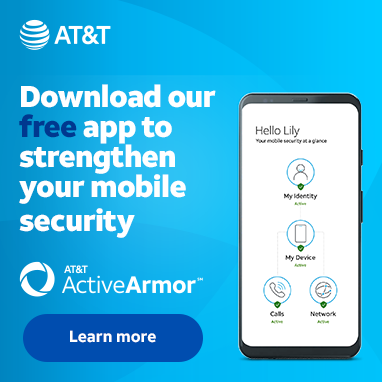
Tutor
•
9 Messages
Attach a 4G modem to an ethernet switch?
Hi;
I live in a remote rural area to the northwest of Houston (Texas) where AT&T doesn't want to provide broadband service via phone lines.
Apparently, I (and my neighbors) are not worth the bother and the expense.
It frustrates me greatly that most people get better connectivity to their cellphones than I get to my house!
Every time I see one of AT&T's commercials on television I have to fight the urge to shoot the television. Since I cannot afford to buy new televisions on a frequent basis (or even on an occasional basis), I typically grab the remote and either change the channel or mute the sound.
I've been getting broadband via a few WISP's over the past several years, and have been dissatisfied with the service. I've been getting "service" with Skybeam for the past three or four years, and I've had my fill of them.
I might be within range of an AT&T tower for 4G and I am wondering if the throughput with a 4G modem would be superior to the wireless service that I've had.
My last speed test results with Skybeam was:
Download Speed: 691 kbps (86.4 KB/sec transfer rate)
Upload Speed: 31 kbps (3.9 KB/sec transfer rate)
Latency: 205 ms
I'm thinking 4G can do better than that.
I'd consider satellite but I've heard too many horror stories about it. Perhaps it's gotten better.(?)
What would I need to attach a 4G modem to my Netgear ethernet router (or to my ethernet switch)?
If there is no way to do that, then what can you recommend in the way of a 4G router with 4 (or 😎 ethernet ports?
Thanks!



Accepted Solution
Official Solution
julywashere
Guru
•
349 Messages
10 years ago
Hello wylbur,
Wireless speeds vary by carrier, geographic area, coverage and technology.
There are three major technologies used for data service labeled as 4G in the United States.
Typically, you can expect speeds surpassing 2Mbps on 4G. Of course, your signal strength, technology used, tower backhaul and capacity, and device used can all have an impact on your speed. The speeds do tend become more favourable if you're in an LTE area, though. Considering most of the area surrounding Houston seems to be 4G LTE, I'd say the odds of better speeds are in your favour. Much focus on modems has moved towards hotspots, rather than datacards. If you use a HotSpot device you can get a WiFi to ethernet adapter.
I've heard very positive experiences with Sattellite Internet (particularly Excede -- which seems to be the best -- and HughesNet Gen 4 -- which has come a long way). While it won't compete with a wired connection, and will not always compete with 4G internet it's something to look into in your area if your 4G options are pretty limited.
0
0
Accepted Solution
Official Solution
julywashere
Guru
•
349 Messages
10 years ago
Oh, yes! I forgot to mention data-caps. Thank you @wingrider01,
@wylbur, it depends on your usage. For example, your typical Netflix movie stream will run about 1.3GB for high quality SD video, and about 3GB for HD video. 1 hour of streaming music (at 128kbps) will run you about 57MB. Visiting primarily text-based websites will run you about 150KB per web-page visit, while multi-media rich sites will run about 300-500KB per web-page per visit. (Not including any interactions with the page -- just loading.) Websites with plenty of pictures and high resolution images may run multiple MBs at a time.
There are 1024MB in a GB, 1024KB in a MB, and 1048576 KB in a GB.
Also, keep in mind that there is plenty of unexpected background data that can occur with Operating System use -- particularly updates, etc.
You can find data-only plan pricing here.
0
wylbur
Tutor
•
9 Messages
10 years ago
THANK YOU for the information!
It is very much appreciated!
0
0
wingrider01
Expert
•
12.2K Messages
10 years ago
Word of caution - you are going to blow through your data plan allotment like a ice cube in a blast furnance with constant tethering.
0
wylbur
Tutor
•
9 Messages
10 years ago
WOW!
I'm glad I checked back in on this thread.
I had no clue about that.
Does anyone have any idea how much of an impact tethering would have?
THANK YOU for the tip, Wingrider!
0
0
wingrider01
Expert
•
12.2K Messages
10 years ago
Don;t forget to factor in the auto-refresh on the web sites advertisements also, have seen a couple of fantasy football league sites push close to 2GB on a page with photos and auto-refresh
0
wylbur
Tutor
•
9 Messages
10 years ago
WOW!
Based upon this information, it looks like 4G is not the way to go.
I'm going to contact another WISP and give them a try. I don't hold out
much hope that AT&T will be getting me U-Verse any time soon, and
Skybeam has been driving me crazy for much too long.
The WISP that I have in mind is ERF, and I understand that they have
Motorola Canopy on the tower that I'd be getting service from.
I've had to trim some tree limbs and cut down a few trees to make an
opening for line-of-sight to the tower. (I hated to cut the trees down,
but I didn't have much choice.)
Posting here turned out to be a good move. Kudos to the both of you
(Wingrider and JulyWasHere). I'm very grateful for the advice!
0
0
julywashere
Guru
•
349 Messages
10 years ago
0
0
wingrider01
Expert
•
12.2K Messages
10 years ago
Have you looked into HughesNet instead?
0
0
julywashere
Guru
•
349 Messages
10 years ago
It's worth noting that satellite internet providers have Data Allowances. Excede, another satellite provider, also includes unmetered access from 12-5am, though.
0
0